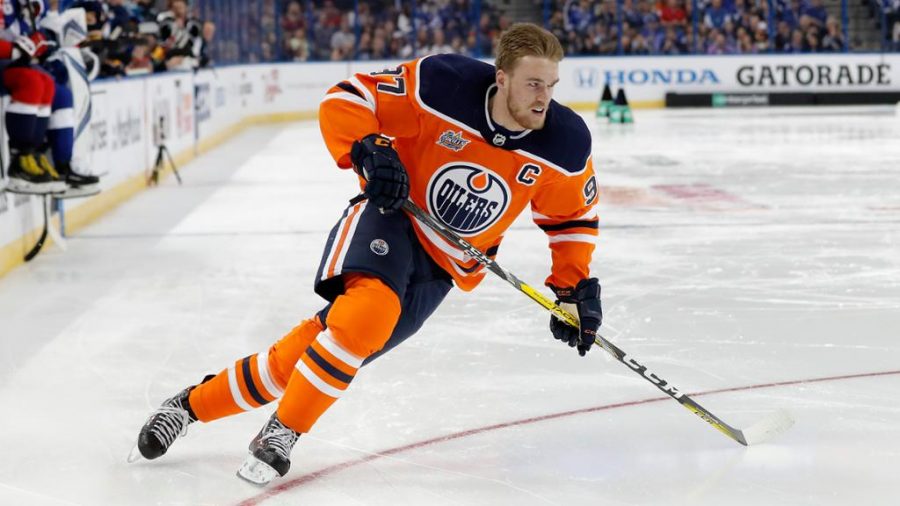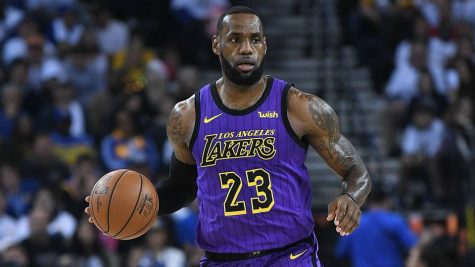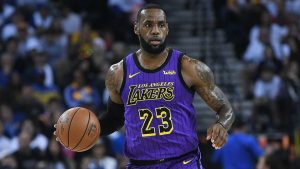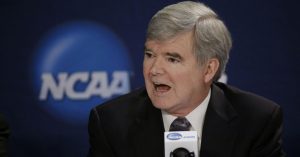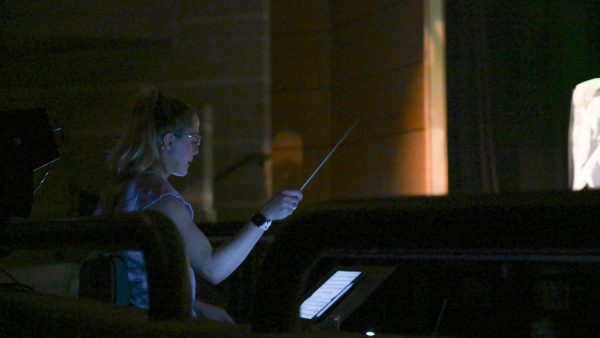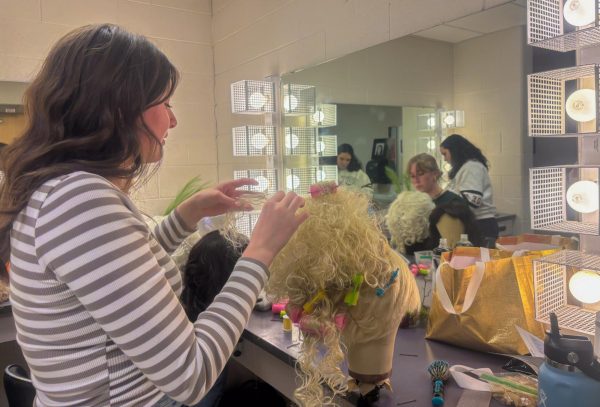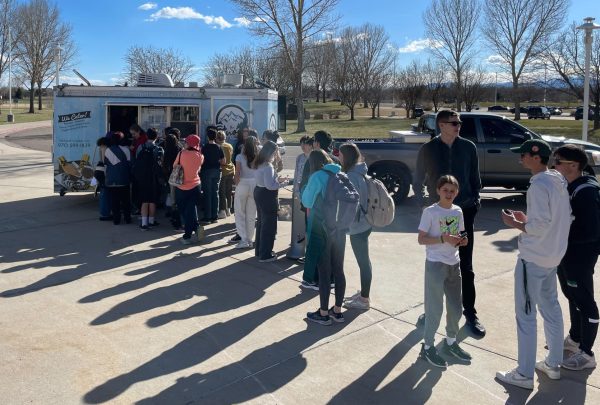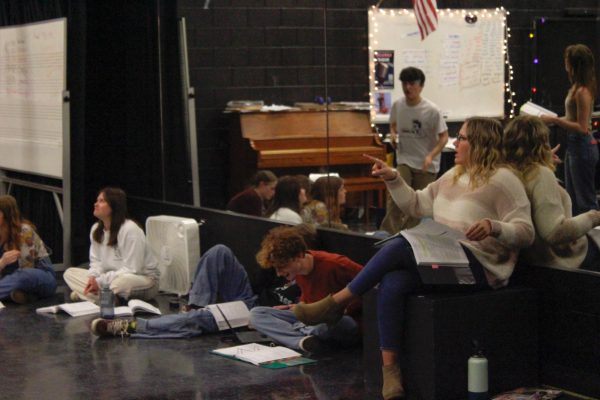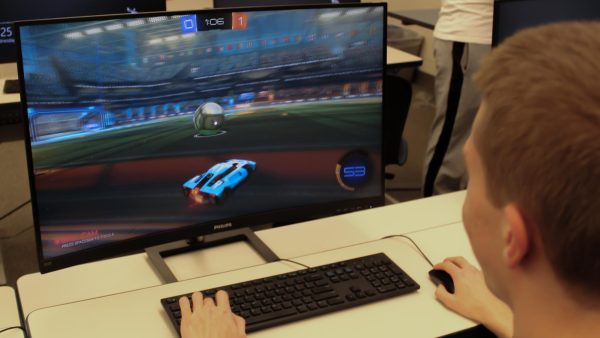Yes, high school athletes should be allowed to go pro
Connor McDavid skates at the 2019 NHL All-Star Skills Competition.
February 28, 2019
On the night of January 25, 2019, National Hockey League (NHL) fans around the world tuned in for the NHL All-Star Skills Competition. Even though all of the competitions (hardest shot, puck control, passing challenge, etc.) left viewers impressed, the first event stood out the most. Featuring arguably the best current NHL player, Edmonton Oilers captain Connor McDavid stepped up to center ice. The referee blew his whistle and off went one of the fastest players hockey has ever seen. The 22-year old McDavid skated around the rink in 13.378 seconds, winning his third straight NHL fastest skater competition.
The Oilers forward broke into the league at age 18. He was drafted 1st overall in the 2015 NHL Entry Draft. In his second season in the NHL, McDavid recorded 100 points with 30 goals and 70 assists. Last year, McDavid did even better, finishing with 108 points with 41 goals and 67 assists. This year, McDavid has 85 points through 58 games and is on pace to finish the season with 120 points.
McDavid’s hard work and passion for hockey have resulted in great success in Edmonton, both for himself and the Oilers organization. He has become one of the most exciting young phenoms in professional sports. At age 22, he has already registered north of 300 points and is earning an average of $12.5 million per year (he signed an 8-year, $100 contract on July 8, 2017).
Now, you may be reading and questioning why I’m narrating the life of Connor McDavid. Well, the question of whether athletes should be allowed to go pro after high school applies to Connor McDavid. During McDavid’s tenure at McDowell Senior High School in Erie, Pennsylvania, he was offered a scholarship to play hockey at Boston University. However, McDavid declined. He thought it be best for his hockey development to reject the offer from Boston University and join the Ontario Hockey League (OHL) (one of the major junior ice hockey leagues in Canada). This decision by McDavid proved effective, as he tallied 285 points in 166 games over three seasons in the OHL. Of course, as a result, McDavid gained large amounts of attention from NHL scouts. A scouting report for McDavid put it best, explaining that “you just have to watch him play one shift and it will encompass all the reasons why he’s a special talent.”
The decision to skip college and enter the professionals allowed McDavid to make the most out of his hockey gift. According to the American Time Use Survey, the average full-time university/college student spends about 3.5 hours on educational activities per day. In addition, they spend an average of 2.3 hours on work-related activities. What going straight to the professionals did for McDavid, and other incredible athletes like Wayne Gretzky, LeBron James, and Ken Griffey Jr., was it enabled him to focus all his time and energy on the sport in which he’s passionate about. McDavid felt no academic strains that have limited his opportunity to make the most out of his talent. As a result, his training and development as a young athlete have already and will forever serve him well in the years to come.
And, let’s not assume that a college degree at 22 is necessary for McDavid to be successful after future retirement. He can always go back to school. Granted, he’ll be in a much better financial situation after years of earning $12.5 million plus than if he were to attend college beforehand. For example, Kevin Weekes, former NHL goaltender, hadn’t attended college because of hockey. However, once he retired, he was able to secure a job as an NHL analyst on NHL Network. Similarly, future baseball Hall of Famer Derek Jeter never played a game on a college campus, yet he was able to co-purchase the Miami Marlins and become one of their owners.
You see, opportunities exist for athletes with or without a college degree. Therefore, it’s important that society not disallow a young athlete’s incredible potential. Instead, they should acknowledge it, for it would guarantee an individual great financial security as well as a memorable impact on society at a relatively young age.



